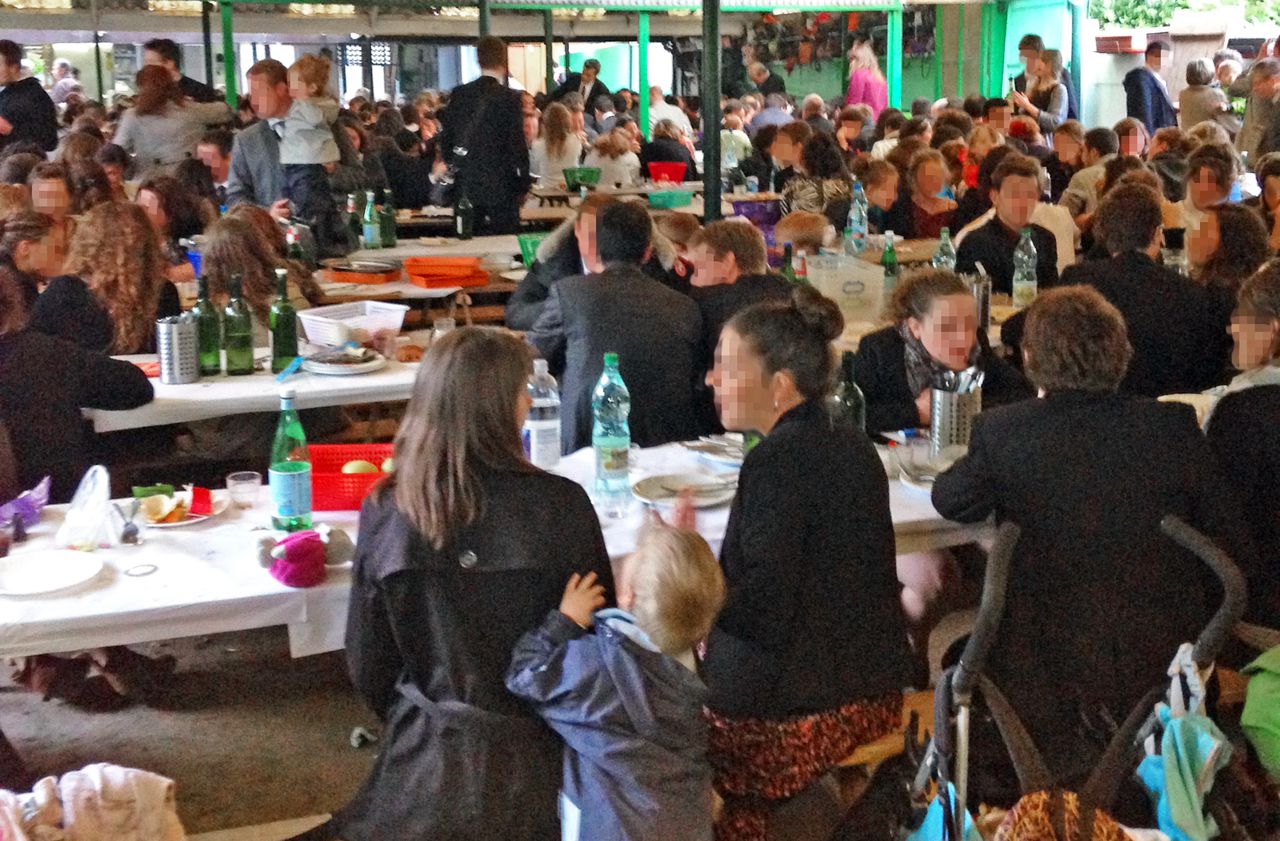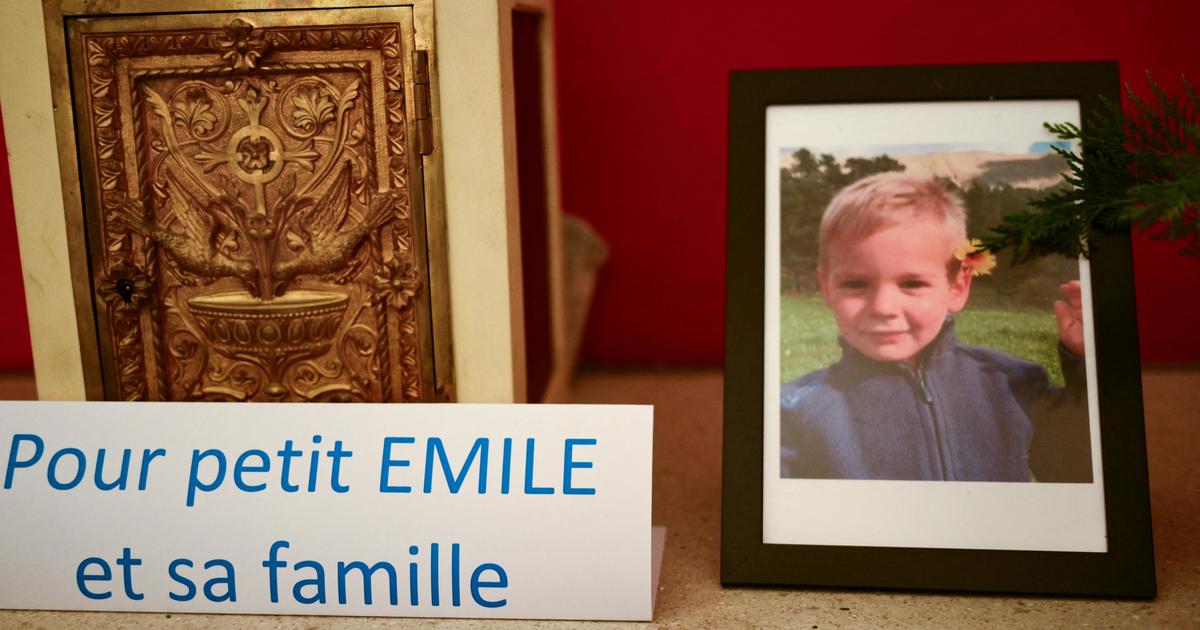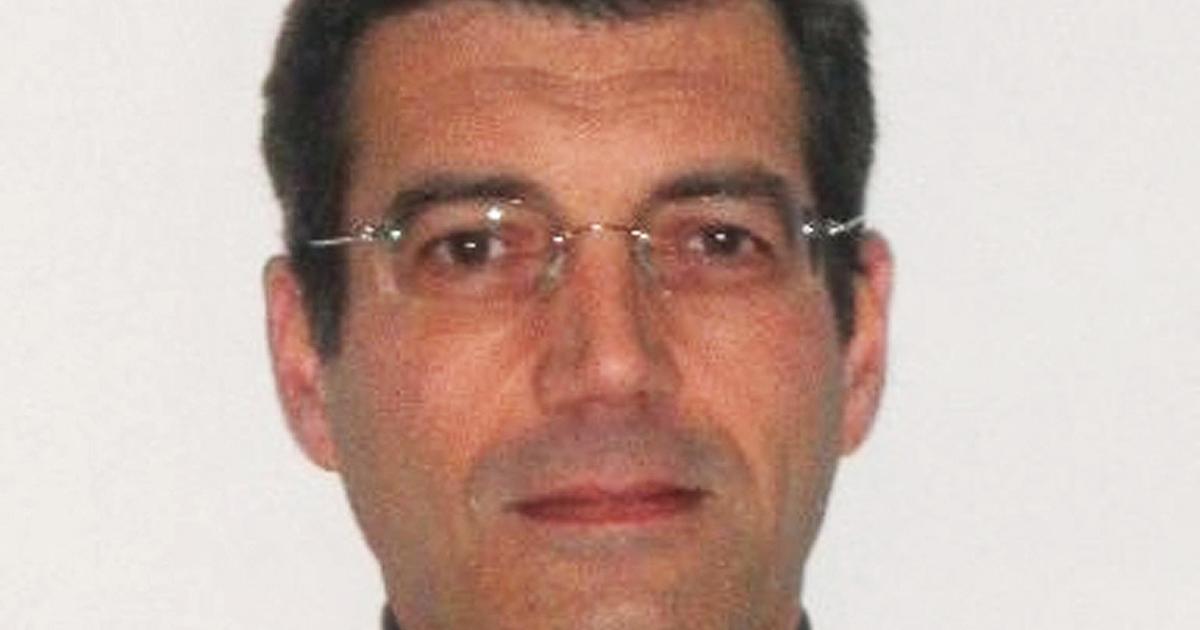It's a family story. That of a secret religious community drawing its roots from the end of the 18th century, and which has endured to the present day. A Family - that's what it is called - whose 3000 members have only eight surnames, and which is the subject of an information note today from the Interministerial Mission for Vigilance and Combating sectarian aberrations (Miviludes). The organization is concerned about possible sectarian aberrations, believing that the isolation of this movement "from the outside world constitutes a threat from a psychological point of view" for the hundreds of children who are part of it.
Until then, the Family was known only to itself. Joining her is impossible. Leaving her means breaking with her loved ones, her past. Over the past decades, several dozen of its members have taken the plunge, however. Some say they have been threatened. Most have psychological consequences. But a handful agreed to speak. For the first time, they lift the veil on this underworld in which they grew up.
The Family is a distant descendant of the "convulsants of Saint-Médard". Born from the vision of two patriarchs in 1819, it took its contemporary form in 1892, when "my uncle Auguste", one of his illustrious elders, decided that it would be nothing more than a camera, now composed of eight names.
"Like many millennialists, like Jehovah's Witnesses or Mormons in the United States, its members anticipate the end of the world, analyzes historian Jean-Pierre Chantin, researcher at ISERL, the Higher Institute of study of religions and secularism. They see themselves as the elect of God, who must therefore be the best believers possible. "
Legend has it that their prophet, Elie Bonjour, left the vanguard of his "flock" rue de Montreuil, in Paris. It is there that at the end of time, he is supposed to come to recover his flock. For a long time, the Family therefore flourished in the neighborhood, before its members swarmed in the 11th, 12th or 20th arrondissements, driven by the rise in rents.
"People get married, cut off from the world"
In essence, the Family is a religious movement. Each father is his own priest. Part of the ceremonies, including baptisms, take place at home. But the Family is much more than a spiritual gathering. Through a multitude of rules enacted over the decades, it strictly conditions the lives of those who were born there. Pauline (all first names have been changed) , 59, fled her when she was 20. She speaks of a "passive sect", in which "people live among themselves, marry each other, cut off from world. " "We can only be adept by blood", adds Robin, 40 years old.
The basis of education is an apocalyptic vision of the future. The outside world, accused of all sins, is called "kindness." Hundreds of hymns or religious texts accumulated over time relate society to a terra incognita populated by satans. From "this monster of impiety", "I no longer want to be the father", sums up one of their sacred manuscripts. At 10 years old, all children must write a prayer called "my father's letter", which they will then carry with them for life as a talisman. "My youth was only psychological pressure of a religious and emotional nature, frightening us about the dangerousness of the outside," sums up Patricia, who emancipated herself at 23 years old.
"Women should not or should not work very little"
As early as 1886, "my uncle Auguste" wrote that he did not want "that the girls work in the workshop", or display "coquetry". Dance is outlawed, and most of the arts are frowned upon. It is forbidden to cut your hair and, for women, to wear pants. As for the boys, they should never be "neither employed nor foremen nor bosses".
Newsletter - The essentials of the news
Every morning, the news seen by Le ParisienI'm registering
Your email address is collected by Le Parisien to allow you to receive our news and commercial offers. Find out more
The members of the Family have thus confined themselves to subordinate professions. "Women have little or no work to do," says Robin. If there is no other choice, they do the markets or sewing. Being a lawyer, judge or doctor is strictly prohibited. Because only "good dad" - God - has power over men, who have to earn a living by the sweat of their brow.
Until death, the Family decides the fate of their own. The deceased was kept at home for three days, windows closed. An 11th century funeral director, always the same for ages, was then contacted. Invariably, burial, prohibited for women, takes place in the mass grave of the cemetery of Thiais (Val-de-Marne). "Regularly, you see hundreds of people there, dressed in the old fashioned way, participate in funerals before going for a drink at the local bistro," describes a witness.
"They govern everything in your life," deplores Alexandre, one of the dissidents. Even when you are gone, for each key step, you continue to be linked to them. For example, I wanted to honor the memory of my parents. But without a tomb, it's impossible. Like others, he castigates a community in which "the human is nothing, and fades behind the group. "
HLM buildings in eastern Paris are almost entirely dedicated to it
The Family could only be an anachronism. A community with obsolete folklore that flourishes out of sight. But for its detractors, its propensity to assume the destinies of the youngest makes it harmful. It is because the Family rules bodies and hearts. "Contraception, and abortion even more, has no place," explains Pauline. Women are there to procreate. »And this from a very young age.
In the Family, we marry virgin, and very early. "As we can only get married between us, this is the union fair," describes Alexandre. You have to act quickly, because once the couples are formed on the same generation, as there are either not enough girls, or not enough boys, you know that singles are very likely to remain… ”
The community is thus large and prolific. By the way of things, some HLM buildings in eastern Paris are almost entirely dedicated to it. "When I left it in the mid-1970s, there were 700 or 800 of us," recalls Patricia. I was sure it would die out. In fact, it has grown inside. "
Some homes have up to 18 children. "My grandmother alone has over a hundred grandchildren," warns Benjamin, in his forties. So, to differentiate themselves, each branch of this particularly dense family tree is decked out with a nickname: the “scribbles” are next to “the marcasses”, the “michmich”, the “paulettes”, the “dedelles” or the “paulthib "
Diseases due to inbreeding
In the absence of openness to the world, consanguinity is recurrent. Many unite despite the fact that they are cousins. "With my wife, we had three great great grandparents, and we did not consider ourselves as such," notes Alexandre. The consequences are often dramatic. "My first cousins, married, had five children," breathes Pauline. Two died in infancy and three are disabled. But for them, it’s God's will… ”
For lack of sufficient genetic mixing, some suffer from rare pathologies, autoimmune diseases or cancers. "Relatives have hemochromatosis, a disease linked to poor iron absorption," explains Patricia, who herself has eleven brothers and sisters. "I have cousins who are victims of Bloom syndrome," notes Basile. Or a protein deficiency which predisposes to certain cancers. Only 200 patients are listed on the planet.
"This is all the more problematic as contacts with the medical world are limited as much as possible," accuses Patricia. There have already been deaths of women in childbirth. My little sister almost died in the 1970s because she hadn't been diagnosed with TB early enough. "Ten years ago, you still refused treatment even for simple asthma attacks," recalls Maxence, a teacher in a college attended by many children of the Family. Fortunately, things have changed a bit. For lack of financial means, some families ended up, for example, accepting the recognition of their disabled children by the MDPH (Departmental House for the Disabled) . "
The amazing repetition of family names at school
If the hard core opts for schooling at home, a majority of followers, however, enrolled their children in school, most often within the strict legal limits of compulsory age. In the districts concerned, the presence of these hordes of brothers, sisters or cousins with identical names ended up making them more visible than the Family would have liked. The children of Suzanne, from outside the Family, studied near the Place de la Réunion in the XXth arrondissement. "Whatever their class, they were surprised to have always comrades with the same names ..."
Intrigued by this “surprising endogamy”, Suzanne embarked on genealogical research. "These same surnames dated back to the 19th century," she noted. I questioned the teachers, who replied that they had known these names throughout their careers, that these families were a little odd, but did nothing wrong. "
"Les fadas de Paris"
Until today, only one episode in the history of the Family was known, without the link with it having ever been made. In 1960, a strange community founded in Pardailhan, a deprived village located 40 km from Béziers (Hérault), the only experience of a French kibbutz. In February 1961, the program "Cinq Columns à la Une" devoted a report to these pioneers, led by a certain Vincent T. .. "We are all from a family branch, wiggle it in front of the cameras. Here are friends of friends, friends of brothers and brothers of friends. "
At best, the locals call them "the Jews of Belleville." "At worst," the fadas of Paris. Unable to survive in these arid lands, the community disarmed in 1962, and passed out in the wild. In 2012, a report from France Culture is devoted to this episode, to which the historic inhabitants of Pardailhan return. "The children were in perfect peace, almost disturbing," recalls an elder. Elan was ten years old at the time. Today a winegrower, he remembers at the microphone “these very nice young people, but very closed. As if there was something sectarian. We didn't know what magnetized them, whether it was religion or something else. "
When the France Culture journalist tries to find members of the community, she runs into a wall. "You will know nothing, and no one will speak to you," she was warned. "Perhaps they have a bad memory of Pardailhan," wonders the reporter. We now know that the debates were intense about this aborted project, and that the "ghosts" of Pardailhan were not all welcome once back among the "Parisians".
"The same blond hair, the same look"
By dint of investigating these, Suzanne managed to learn more. "Now I recognize them at first glance," she jokes. A few months ago, during a flea market, she met teenagers from the Family. “I asked my children if they were among them, and I was right: they are all very similar, especially the girls. "Suzanne describes thus" the same blond hair, the same look, and also the same posture, different from that of teens their age, always a little on the reserve. "Of course the principals are aware!" insists Patricia. They rub shoulders with these fiddles with children who sometimes look so much alike that they look like clones. "
"The director is not unaware of this sectarian aspect, but rather sees them with a good eye, because they do not make history and bring diversity in a sector which needs it", explains this parent of pupil of an elementary school of the XXth century. As elsewhere, the children of the Family stay there “most often among themselves. All the more so since the rules laid down with regard to "kindness" are regularly reminded to them by their elders. "I quickly understood that I was not like other children," said Céline, in her thirties. I left home as late as possible to stay as short as possible in the yard. I never went to the canteen, and I was not allowed to go to my friends' house. "
Frequenting these others who are "in error" would expose, according to the dogmas of the community, to a rejection of God. "These children never participate in activities, do not go to the green class," notes Maxence, the teacher. They are cut off from their comrades, from everything that makes up the traditional collective. It is because they have their own, around their brothers and sisters or cousins. "To preserve secrecy, and to manage as well as possible this double interior and external personality, I learned to lie very young", denounces Alexandre.
Among the judges, doubts about the existence of the Family
If he has restarted his life "outside", precisely, where he had two other children, his first four still live with their mother, "in the sect", as he describes it. Alongside his lawyer, Sylvia De Sousa, Alexandre fights today to protect them from the Family, just as much as he fought against his own demons, including alcohol, a "heritage" of the community, according to him. At the end of a long struggle with social services, and a complex educational work, he still struggles to make his interlocutors understand what it is all about, even if several expert reports go into his meaning.
One of his children, for example, seems clearly caught in the crossfire. Seen by a psychologist at the request of a family judge when he was 10 years old, he explained to him that "if [my] grandmother died, it is because she did wrong, because she is at fault with religion and wrote letters to the judge to support my father ”. At least that's what his mom told him. The same "explains having betrayed his mother, because he should not speak of religion" outside, notes this expert psychologist.
The judges and the social services which have examined this parental conflict sometimes have doubts about the very existence of the Family and its consequences. In 2019, a magistrate from Bobigny (Seine-Saint-Denis), in her judgment fixing the residence of Alexander's children with their mother, thus confines herself to evoking on the part of the father "a long logorrhea on the belonging of her ex-wife to this sect ”. She draws no conclusions from it.
Some flourishing children, others suffering
Even today, the absence of proselytizing of the Family makes it hermetic to the services of the State. Who are still struggling to take the full measure of the problem. "If some children can flourish there, others are suffering and it is important that the different services are attentive," warns Anne Josso, the secretary general of Miviludes.
"Apparently, some families may appear structured, notes Maxence, but I have the feeling that on the whole, these children are not doing well. "The community is so closed that despite our concerns, we never have enough elements to intervene," notes a social worker on condition of anonymity. Such an environment often includes drifts by its very nature. This is also the conviction of several "dissidents", who sent an alert letter at the end of April, including the information note from Miviludes, to most schools providing education for the children of the Family.
Conflicts with the teaching staff are however rare, and mainly concern guidance. “The parents' objective is that from the age of 16, their children leave school, regrets Maxence. We have to fight to make them admit that they have a right to another future than the one they reserve for them. Especially girls, whose only perspective is to give birth. "Our parents are like detached from us. They don't see themselves as real parents, criticizes Céline, since only Bon Papa is. Like many, she regrets not having had the opportunity to study. "My youth was a non-choice of everything," she sums up.
Sexual abuse
Even more serious: at the end of our investigation, several testimonies of intra-family sexual abuse were entrusted to us. To our knowledge, none has been the subject of legal proceedings. “I was raped by my own brother, cowardly Pauline. My mother always supported him. There was no need to make history. That's why I left… ”
The fact is that, whatever happens, the Family intends to settle its own problems, the justice of men fading before divine justice. "I was sexually touched at the age of 13 by a member of the community who was friends with my parents," said Marine, who is 40 today. His word was not heard. “The child victim has no possible help since locked up in a community where silence is the watchword, she is indignant. The drama is stifled to preserve unity. I have heard of many similar facts, but each time the rumor disappeared into general oblivion. "
"The distrust of this Family towards the outside world conceals the sexual abuse that can occur there," admits Anne Josso. The boss of Miviludes specifies, however, that beyond criminal cases, "social investigations are underway concerning the situation of several children".
Their communitarianism praised even by repentants
It is difficult to distinguish what is involved in the mistreatment of an "alternative" mode of education. "If some facts are sectarian drift, this is not always the case," notes Anne Josso. This is what makes the complexity of this file. These people also have the right to their way of life, to believe in Bon Papa if they wish. ” Especially since even the “repentants” of the Family concede it: its communitarianism is also a virtue.
“In some ways, the atmosphere is good, in generosity, sharing, solidarity and brotherly love, recognizes Marine. Children grow up in a world that is pleasant to them. ” Even if it is "preformatted, limited and confined". Every first Saturday of the month, we gather for "the Soup" in a Charonne café. This is also where men water the births, around sixty a year. At weekends, children and adolescents find themselves in the woods or leisure centers of Ile-de-France. A football tournament is organized each year in Vincennes with teams exclusively made up of family members.
Solidarity is one of its cardinal values. "You'll never find it anywhere else," says Alexander. If you move, 200 arms are ready to help you. And it's the same if someone from the outside wants to hurt you. The mutual aid is undeniable. "The old people are taken care of," says Patricia. And in case of hardship, for the needy or widows, a kitty is provided. "
"Alcohol, one of the true cements of the Family"
The calendar is punctuated by religious festivals. If some correspond to the highlights of Catholicism, others belong only to the movement. Most, including marriages - unofficial because of inbreeding - are celebrated in Cosseux. Originally, this house in Villiers-sur-Marne was that of “my uncle Auguste. A century later, the place has grown, transformed into a kind of social center that does not say its name. Traditions are firmly rooted there. As in everyday life, young people address them to adults with “hello my aunt” or “hello my uncle”.
As they grow, they change tables according to a codified rhythm. Singles are cooking. We socialize in the nursery, in the locker room or at the "coffee house". The aperitifs last from noon to 4 p.m., and after the meal, the fiancés will serve the digestif. “Alcohol is one of the true cements of the Family, points out Alexandre. He is everywhere, at every opportunity. "
The unity is such that any member determined to move away from it must be ready to pay the price. “Teens can sometimes be fairly free or rebellious, notes Suzanne, but they are quickly caught up and have to fit in the mold. For those who would not consent to it, it is a way of the cross that is coming. Leaving religion alone is impossible. "To deny it is to leave the Family, and vice versa", underlines Benjamin. "It is difficult to get out of it unscathed," warns Robin, "as the brainwashing is intense, precocious, and the effect of the pack particularly pernicious." "
The start, an "incurable scar"
"To cross the exit door is to become an orphan," explains Céline. "Overnight you are denied, and you find yourself in a world in which you have never been taught to live," says Patricia, who committed this supreme sacrilege of getting married and having children. 'outside'. This trauma of a rupture experienced 40 years ago, she talks about it “as if it were yesterday. "It is an incurable scar. "
All of them tell of this heartbreak that they have never really been able to ease. "I lost my childhood friends and part of my close family," analyzes Marine. The impact has been enormous. You want to live your life, without judging theirs, but the reverse is impossible. This Family which continues to haunt its former members also influences their loved ones. Hélène, companion for fifteen years of an ex from the Family, describes “a permanent battle”. "They blackmail them, tell them that they can come back, but that if they don't, it's over: you are banished, you are not even kept informed of births. "
Leaving is all the more difficult as a return actually remains always possible. "When I made this choice to live my life, at 16, they told me that I was possessed, but that if I found the right path, I would be forgiven", loose Alexandre. Some crack, and backtrack. "It's very hard to tell myself that I will have no family to present to my son, born outside, and who is seen as a child of the devil," describes Céline. "If you want to get out, you have no choice," says Pauline: "you have to jump with both feet together outside, and keep none inside." "
A system that continues
Witnessing what life is like within the movement, breaking this omerta instilled from birth is for many an essential step towards emancipation. "Since I separated from their mother, and they have been around this sect without guardrails, my children are no longer the same," accuses Alexander. If I speak today, it is for them, for the future of everyone else. "
Because everyone recognizes it: despite its faults, the Family continues to perpetuate itself, strong from its many births. One of its legends is that when it has only seven surnames, the end of time will be near. Her eighth name, a line made up entirely of girls, is slowly dying out.
Far from relying on what they call "superstitions", the reprobates of the family have united, notably through a Facebook group of around sixty members. Denounced for the first time, the Family seems to have paid little attention to it. As Miviludes notes, its cohesion is not based "on the existence of a leader or a structured organization", but "in the strength of an apocalyptic vision where salvation depends on the community's ability to preserve from the outside world and perpetuate the secret of its traditions ”.
“The Family is a herd without a shepherd, according to Alexander's formula. There is no chief. Only a few respected alumni - the "tie dads" - none of whom agreed to answer our questions. “It is not the first time that the Family has been insulted. She has known worse. She is stronger than anything, ”swept one of her members on Facebook.
Its detractors, they no longer intend to be silenced. “The children of the Family do not choose their fate, protests Marine. They can of course flourish there, but they can also suffer from it. Let them grow up in peace, she urges. Without falsifying the cards from the day of their birth. Let them choose a life. Of their life. "
A centuries-old history
XVIIth century: birth of Jansenism, a Christian doctrine based on the texts of Saint Augustine, opposed to the Jesuits. It will develop in particular in the abbey of Port-Royal.
1731: appearance of the "convulsionnaires". Stemming from Jansenism, "the work of convulsions", as it is called, is characterized by the mystical-religious trances which seize its followers, mainly from working-class neighborhoods. These "convulsions" were born on the allegedly miraculous tomb of a deacon, François de Pâris, buried in the Saint-Médard church in Paris. "Convulsions" were banned by Louis XV in 1733. The movement went underground.
In the 1770s, a "convulsant" group gathered around two brothers, Claude and François Bonjour. These priests, driven from their parish, find themselves in Fareins-en-Dombes (Ain), where their practices are scandalous.
In 1791, the Bonjour returned to Paris. Jean-Pierre Thibout meets them and becomes their porter. On August 18, 1792, in Paris, the “holy prophet Elijah” was born, still venerated by the Family. Elie, quoted in Les Misérables, is the son of François Bonjour, who, exiled to Switzerland where he died in 1805, still federated a few hundred people around him. Elie died in 1866. The majority of specialists believe that this Parisian group almost disappeared in the middle of the 19th century, but the "bonjouristes" continued to become the Family.
1819. “Official” birth of the Family around Jean-Pierre Thibout and his friend François Havet, known as Papa Jean and Papa Yete. The legend says that, gathered in a bistro in Saint-Maur, each one put a piece on the table, a third, that of the Holy Spirit, having appeared. The scene is always celebrated every first Saturday in January in Saint-Maur, during a so-called bean festival. The two men decide to marry their children. Until the end of the 19th century, this religious community was still open to outside marriages, and then had around ten surnames.
1892. Augustin Thibout (1863-1920), known as "my uncle Auguste", decides to close the family to the outside world. She will therefore no longer have more than eight surnames, one of which is dying out, for lack of male descendants.









